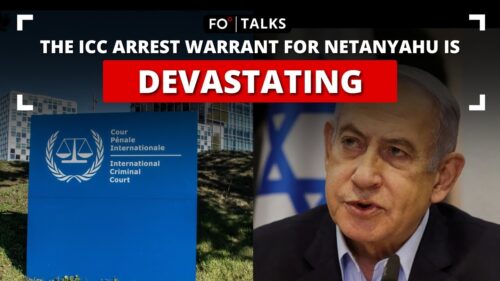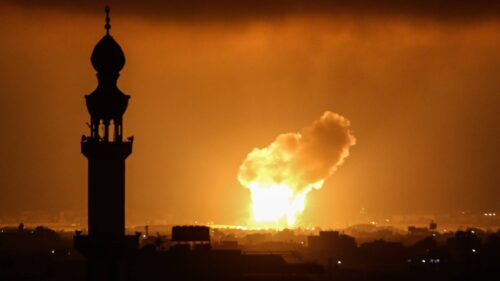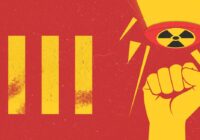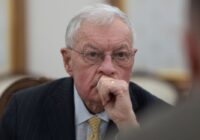On March 20, Karim Ahmad Khan, Prosecutor of the International Criminal Court (ICC), asked for five arrest warrants for war crimes. The parties of interest were Hamas leaders Yehya Sinwar, Mohammed Deif and Ismail Haniyeh along with Israeli Prime Minister Benjamin Netanyahu, and Israeli Defense Minister Yoav Gallant.
Leaders from Jerusalem to Washington objected to Israel being mentioned in the same breath as Hamas. Why? Is it really so much of a shock to say Israeli leaders could be war criminals, and nothing of note to say that Palestinian leaders are? Why the double standard?
Who are Hamas?
To explain how Hamas got its current evil reputation, we must first look at its history.
“Hamas” is an acronym for Harakat al-Muqawama al-Islamiyya, which means “Islamic Resistance Movement.” After its rival Fatah, which governs in the West Bank, it is the largest political group in Palestine. The group was formed in 1987 at the beginning of the first Palestinian intifada against the Israeli occupation of the West Bank and the Gaza Strip.
Hamas is affiliated with the Muslim Brotherhood in Egypt. They presented themselves as the savior of the Palestinian people after Fatah’s Palestinian Liberation Organization (PLO) failed to make peace with Israel. The PLO laid down its arms and accepted a quasi-governance over the occupied West Bank but never achieved statehood. Hamas rejects the PLO’s approach of collaboration and opposes the Israeli state by force.
Because it refused to compromise, Hamas earned a reputation as the consistent group in the fight for Palestinian nationhood, while Fatah came to be seen as sellouts. Hamas defeated Fatah in the 2006 Palestinian legislative election. It was a decisive victory for the future of Palestine. Since then, Hamas has been in control of Gaza.
While very popular within Palestine, Hamas has been losing the propaganda battle abroad. Western governments and media label it a terrorist group. Some Arab countries have abandoned the Palestinian cause and made peace with Israel, using Hamas’s reputation as part of their excuse. The UN sends aid to Gaza, which is a small, isolated territory and has trouble feeding its population, but has done very little to make a normalization of Palestine’s status a reality.
Mohammed Soleiman, a Palestinian who studies in Turkey, spoke about his experiences with the author. He did not mince words as he vented the frustration that he shares with so many other Palestinians.
He felt that the United Nations has plundered Palestinian citizens alive and dead, and supported Israel’s genocide of Palestine. So far, he said, only Hamas has fought for the rights of the Palestinian people.
Mohammed stressed the importance of Palestine to Muslims. Jerusalem was the first qibla, the point towards which Muslims pray, before Mecca. Yet he recognized that the land holds religious significance for Muslims, Jews and Christian. Muslims do not want to expel Jews from the land, Mohammed said. Yet they want to live in peace in the land where they have lived for 14 centuries.
In contrast to the UN, Hamas seems like a well-prepared operation capable of delivering on its promises. Hamas provides public services and moral support to the Palestinian people and thus receives their trust in return. Even now, while Israel has covered the greater part of Gaza militarily and sought to root Hamas out, Hamas remains and so, in large part, does Palestinians’ confidence in it.
The international community’s double standard
Palestinians have little faith, on the other hand, in a “rules-based international order” that calls their Hamas “terrorist” while denying Palestinians the minimum of statehood and dignity. In their eyes, the UN, the West and the Arab states are pursuing a hypocritical “peace for me, not for thee” policy.
Despite the flurry of articles and protests about what is going on in Gaza and Palestine more generally, in terms of real action, the world is turning a blind eye to what is happening. Not willing to bear the contradiction, many intellectuals are forcing themselves to agree with the West to settle their national interest. For example, in 2017, Abdul Hakim Hamid, who heads the Jeddah-based Institute for Middle East Studies, stated that “there is no place in the political arena … for terrorism or for groups who use religion for political gains like Hamas.” The statement sounds straightforward, but in reality, it amounts ot a rejection of Palestine. Rhetoric like this is made out of fear and seeks to cater to Western favor. The author argues that these intellectuals are really aware of the truth of the situation although they may wish to downplay the injustices to Palestine.
The UN always talks about the humanitarian crisis in Gaza, but it is hard to see what they are actually doing to settle this conflict. Do not forget that the UN is not an impartial organization, but was created by the victorious allies of World War II to secure their continued dominance over the rest of the world. The UN aims to disguise their Western interest as peacekeeping. If the UN wants to be serious about upholding peace in this conflict, it needs to really do something.
What Next?
Human rights need to be actively safeguarded; being neutral isn’t enough. Every country has the right to protect itself and fight for its rights, including Palestine. The International Court of Justice recently ordered Israel to halt its offensive on Rafah; this was a step in the right direction.
The ICC moved towards arresting Netanyahu and Sinwar in the same action; this was a step forwards and a step backwards at the same time. In the face of overwhelming firepower, if a people takes the necessary measures to defend itself, how can you call that a war crime?
Ironically, the only reason the ICC has jurisdiction over the case at all is that Palestine — not Israel — ratified its founding Rome Statute in 2015.
The point is not to excuse actual wrongdoing by Hamas, which the authors admit can very well happen. Yet the world must move past false neutrality and a “both sides” attitude. The world needs to look at the facts: the Palestine conflict is not just about Arabs and Jews or Islam and Judaism. It is an exercise of Western imperialism, aided, abetted and disguised by the institutions of Western dominance.
The whole affair calls into question the very existence of the United Nations as an organization that enforces world peace. The “international community” seems ready to jump into the fray when the West is threatened in Ukraine, but when Palestine is threatened, it has little more than kind words to offer, if that.
Palestinians should be proud of Hamas and of what they were able to accomplish under fire. On October 7, yes, Hamas fighters killed innocents, but more significantly from a world-historical perspective they gave an overwhelmingly more powerful, technologically superior Western-backed opponent a bloody nose, broke over its barriers and subdued its soldiers. If the international community really cares about peace, it must strive for real peace, not a mere settlement of hostilities that protects Western interests. When oppressed peoples are pushed to the brink, they will fight back.
[Beaudry Young edited this piece.]
The views expressed in this article are the author’s own and do not necessarily reflect Fair Observer’s editorial policy.
Support Fair Observer
We rely on your support for our independence, diversity and quality.
For more than 10 years, Fair Observer has been free, fair and independent. No billionaire owns us, no advertisers control us. We are a reader-supported nonprofit. Unlike many other publications, we keep our content free for readers regardless of where they live or whether they can afford to pay. We have no paywalls and no ads.
In the post-truth era of fake news, echo chambers and filter bubbles, we publish a plurality of perspectives from around the world. Anyone can publish with us, but everyone goes through a rigorous editorial process. So, you get fact-checked, well-reasoned content instead of noise.
We publish 2,500+ voices from 90+ countries. We also conduct education and training programs
on subjects ranging from digital media and journalism to writing and critical thinking. This
doesn’t come cheap. Servers, editors, trainers and web developers cost
money.
Please consider supporting us on a regular basis as a recurring donor or a
sustaining member.
Will you support FO’s journalism?
We rely on your support for our independence, diversity and quality.










Comment